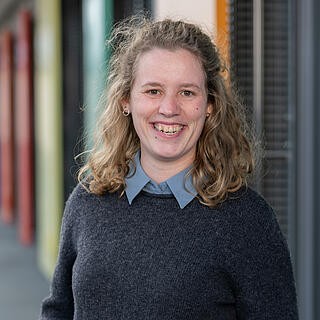Societal change by transitioning to a circular economy

Neue Folge: Wieso brauchen wir eine Circular Economy?
A circular economy supports the transformation towards a sustainable society that protects the climate and biodiversity. In a circular economy embracing all sectors, products and raw materials are utilised for as long as possible and subsequently recycled – which will change our whole way of doing business and consuming. Clara Löw explains how this can be done, citing some promising approaches and studies that are already available on the subject, in the new episode of the Oeko-Institut’s “Wenden bitte” podcast.
The focus of the circular economy should be on avoiding waste and keeping products in use for as long as possible. Cycles can be slowed down and even closed as a result. “These changes affect all modes of production, patterns of consumption and ways of life,” explains the staff researcher from the Sustainable Products & Material Flows Division. “Using fewer raw materials diminishes environmental impacts and reduces dependency on other countries and energy consumption. All that helps with tackling current societal challenges and mitigating climate change.”
The podcast audio is in German; an English translation of the exchange is here.
Reducing primary resource consumption and taking international action
Moving over to a circular economy has the potential to reduce greenhouse gas emissions by up to 26 per cent and raw materials consumption by up to 27 per cent by the year 2045. “Reducing raw materials consumption is central to achieving the goal of climate neutrality,” according to Löw. The benefit of a circular economy to society as a whole is distinctly higher than the socio-economic costs associated with the transformation. These were the findings of the extensive “Model Germany” study conducted by the Oeko-Institut for the WWF.
The circular economy is already being discussed and put into practice in many countries: “Learning from other countries means recognising that the societal transformation is already under way,” says Löw. In her view, Germany must get involved in the discourse and actively shape the transformation. That would also be a way for Germany to work internationally with the countries that are still more focused on better waste management to shift the emphasis towards extending product durability and service life.
Circular Economy Action Plan: Policy approaches
The circular economy has become a high priority within the European Union with the Circular Economy Action Plan as part of the Green New Deal. Germany is currently working on its National Circular Economy Strategy, and the public consultation process is in progress. In the podcast, Clara Löw stresses how important policy measures are: “I don’t think this transformation will steer itself. We need intelligent, ambitious policy and we need decision-makers who will campaign for acceptance of the transformation in the population.” An important step would be to abolish environmentally harmful subsidies, provide financing to enable the conversion to cycle-oriented production, and adjust certain taxes such as value-added tax rates for repairs. It would also be necessary to place more responsibility on manufacturers, draft additional standards for product design and reform public procurement. The public debate about changing the approach to consumption should begin as a matter of urgency, urges Löw.
Knowledge rather than everyday advice
The Oeko-Institut's podcast “Wenden bitte!” (“All change please!”) is aimed at listeners from politics, science, the media, NGOs and the general public – anyone with an interest in political and environmental issues. Co-presenters of the podcast are Nadine Kreutzer, journalist and presenter, and Mandy Schossig, Head of Public Relations & Communications at the Oeko-Institut. For about an hour – enough time for the “long haul of environmental podcasts” – they talk with one of the Oeko-Institut’s experts about upcoming transformations towards sustainability.
